(Almost) Everywhere you look in China: Cute and lovable Chinese babies!
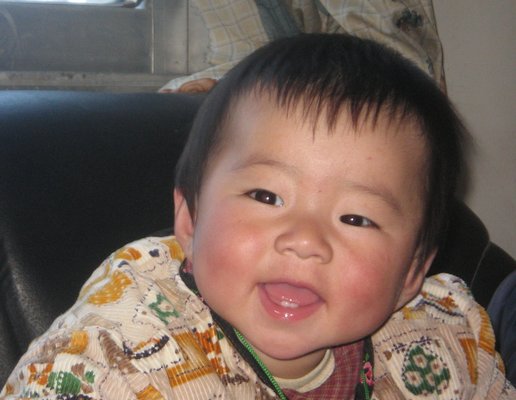
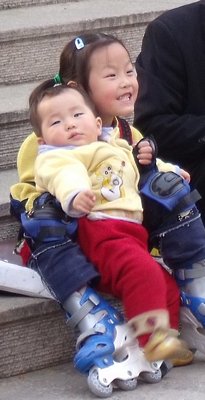
Chinese babies are, of course, treasured by their parents but it seems
to me that they are shown off more than babies in North America.
Perhaps that's because China is a very community-oriented place. I live
on my university campus along with students, staff, and faculty. A late
afternoon walk around the university passes by retired folks strolling
and arguing, grandparents playing with their grandkids, and school kids
of various ages.
On a nice weekend afternoon you'll see lots of Chinese infants and toddlers in public parks. Their parents and grandparents love to show them off and have them enjoy the fresh air.
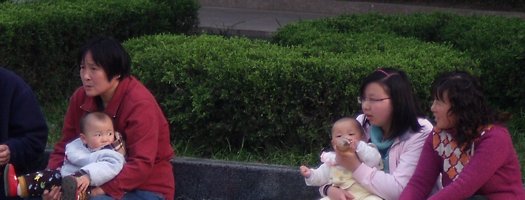
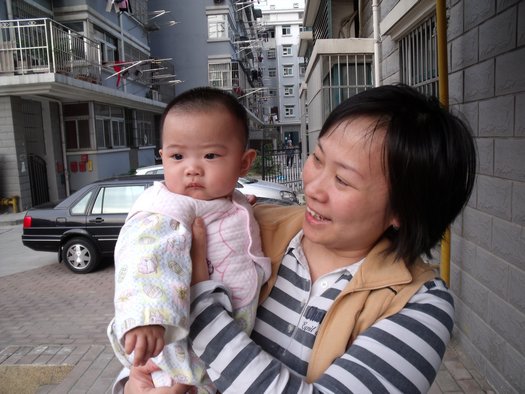
Every culture, however, has certain child-raising customs that mystify those from other cultures. In many places in China, mothers of newborns follow a custom that for the first month after the birth, the mother stays at home, in bed, and does not bathe. That sounds pretty strange to me -- I wonder how the tradition started. But maybe that's why babies are so proudly shown off later... making up for lost time?
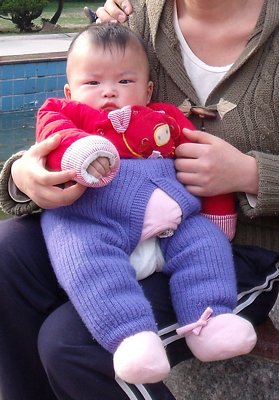
Another thing that seems strange to me is that babies are wrapped in
so many layers of clothing that a China baby looks like a little ball
of
cloth! Even in warm weather, babies and toddlers are typically way
over-dressed (by Western standards). In fact, adopted Chinese babies
often have very poor arm control when they are adopted because the
clothes they are dressed in at the orphanage basically make their arms
stick straight out to the side.
Another old tradition is that up to age 10 months, babies are supposed to be wrapped up so they cannot move. If they try to walk or crawl too young, their legs will end up warped. When Western babies are being encouraged to roll over, crawl, and move all they can, Chinese babies are typically held or swaddled so they cannot move.
At the orphanages this does let less staff care for more babies who are wrapped up in their cribs, but don't let that fool you into thinking the orphanage neglects children. The Chinese orphanage workers I have met have cared very deeply about the children and seem to do the best they can with the resources they have. Here are a couple of dedicated orphanage workers with one baby soon to be adopted.
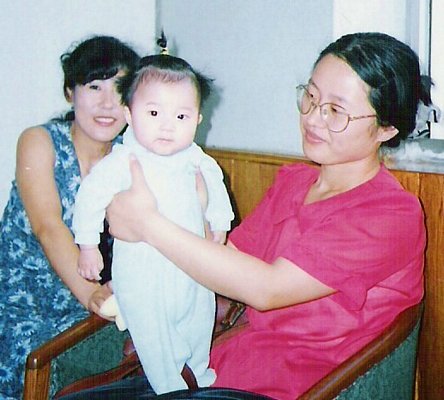
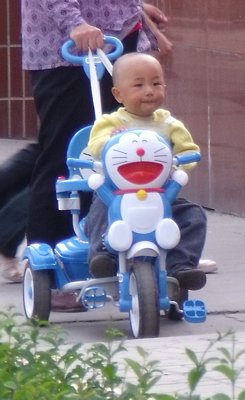
In the last 20 years in China, baby traditions have been gradually loosening, particularly among the well-educated in the cities, or those who have had contact with other cultures. Still though, a parent with a baby or young child dressed lightly, even on a hot day, may get scolded by strangers on the street and told that a Chinese baby should "wear more clothes" ("Duo chuan diar!").
Do Chinese babies wear diapers? In the cities, some well-off parents are using disposable diapers but I'd guess that the vast majority of babies in China wear split pants. Do they get cold? Tradition says "No, because babies' bottoms have three fires." It is a common sight to see a parent or grandparent holding a baby in "the position" and whistling, which the baby learns to recognize as the signal to pee. That's what you're seeing in this picture, with a bit of trimming for decency.
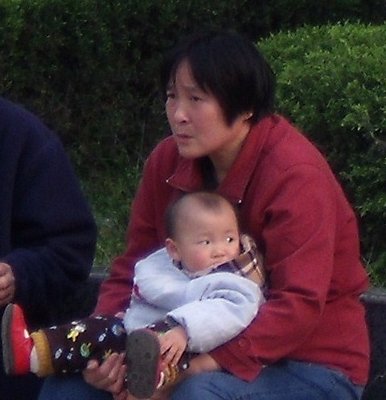
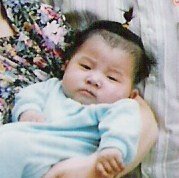
In modern China, typically both parents have a job outside the home and it is often the grandparents who take care of the baby. If they are not available, an "aiyi" (eye-ee) will get hired. Often the aiyi is a countryside girl who is glad for the relatively easy job in the city taking care of a Chinese baby.
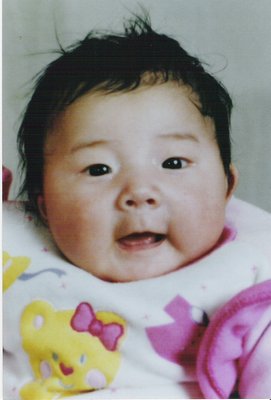
For the past 30 years or so, China has had a one-child-per-couple policy that currently affects about 36% of the population. There are exceptions to the policy for ethnic minorities, some rural couples, when a first child has a handicap, and, recently, in the Szechuan earthquake area. Although the population of China is still growing because of the number of young childless couples, Chinese authorities say that the first 20 years of the policy cut the number of births by 250 million.
A survey in 2008 showed that about 75% of the people in China support this method of controlling population, and the Chinese government has stated that the policy will probably continue until at least 2018.
One result of the one-child policy is that Chinese children are
especially prized and pampered. It's the 4-2-1 effect: four
grandparents and two parents, all adoring one precious baby. (For more
Chinese baby pictures, click here.)
Click
here
to see more photographs of babies
from various parts of China, and more observations of Chinese
baby-raising customs.
Click here to see a Chinese
baby and some other children in a Beijing hutong neighbourhood.